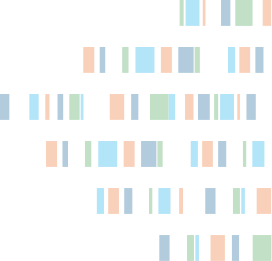The amphibian disease chytridiomycosis, caused by the fungus Batrachochytrium dendrobatidis (Bd), has contributed to the decline of Chiricahua leopard frogs (Rana chiricahuensis), a federally threatened species native to the Southwestern United States. We characterized immunogenetic variability in R. chiricahuensis by sequencing an expressed Major Histocompatibility Complex (MHC) class IIβ gene across 13 natural populations in Arizona, USA, as well as 283 individuals that were captive reared from two egg masses. We recovered a total of five class IIβ MHC alleles compared to 84 alleles previously characterized in eight natural populations of the Arizona congener R. yavapaiensis, demonstrating reduced MHC diversity in R. chiricahuensis. One allele was fixed in five populations but none of the R. chiricahuensis alleles were closely related to R. yavapaiensis allele Q, which is significantly associated with chytridiomycosis resistance in laboratory trials. Nine of 13 R. chiricahuensis population localities were Bd positive, and bearing allele RachDRB*04 was the best genetic predictor of an individual being infected with Bd. A total of three class IIβ alleles were recovered from captive reared individuals, which were released to two natural population localities followed by recapture surveys to assess MHC-based survival over winter, the time when chytridiomycosis outbreaks are most severe. At one site, all released animals were fixed for a single allele and MHC-based survival could not be assessed. At the second site, fewer than half of the released but all of the recaptured individuals were homozygous for RachDRB*05, indicating that MHC genotype is important in determining Bd survival under natural field conditions. We conclude that the limited MHC variation in R. chiricahuensis is likely the consequence rather than the cause of natural selection favoring alleles that promote survival in the face of Bd. Our study highlights that preserving even low levels of functional genetic variation may be essential for population persistence, and that local disease adaptation may present as a reduction in genetic diversity. These finding also suggest that for populations that have declined due to a specific infectious pathogen, MHC-based genetically-informed reintroduction approaches may enhance species recovery efforts.

Home » Lost but not forgotten: MHC genotypes predict overwinter survival despite depauperate MHC diversity in a declining frog
Publications
Lost but not forgotten: MHC genotypes predict overwinter survival despite depauperate MHC diversity in a declining frog
myBaits
Daicel Arbor Biosciences
5840 Interface Dr. Suite 101,
Ann Arbor, MI 48103
1.734.998.0751Ann Arbor, MI 48103
©2025 Biodiscovery LLC
(d/b/a Daicel Arbor Biosciences)
All Rights Reserved.
(d/b/a Daicel Arbor Biosciences)
All Rights Reserved.

 Bluesky
Bluesky